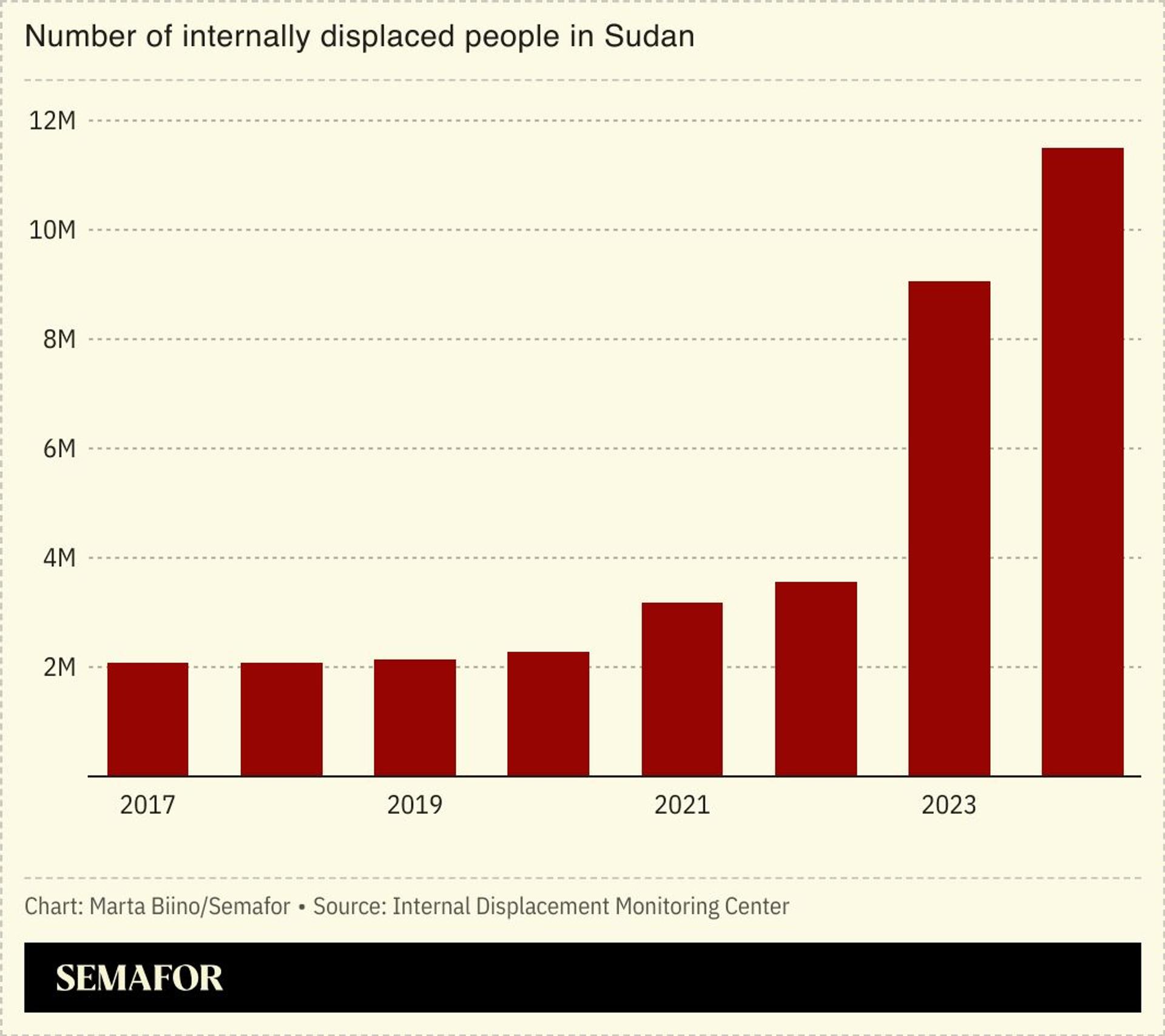The News
UK, European, and African Union officials gathered in London Tuesday to mark the second anniversary of Sudan’s civil war, which has led to thousands of deaths and millions of people displaced.
The meeting was aimed at building a united front on how to end the conflict — although Sudan’s main warring parties were not invited — and to find ways to get more humanitarian aid into the country: The UK on Tuesday announced a new £120 million aid package for Sudan. But the UK foreign secretary warned that a lack of aid was not “the biggest obstacle [to peace]... it’s lack of political will.”

SIGNALS
Sudan’s conflict may not be resolved through military force
Civilian leadership is the only viable route to lasting peace in Sudan, former prime minister Abdalla Hamdok argued in the Financial Times, stressing the crisis can not be resolved through force: Military takeovers and authoritarian rule risk formenting future conflicts. Yet “that begs the question of how to convince the military leaders to play a constructive role in... a democratic transition,” Wilson Center analysts argued last year. Some pro-democracy activists have aligned themselves with the Sudanese Armed Forces, but its human rights record make it “unfit to govern,” a Sudan-based aid worker wrote in Foreign Policy. “If the SAF doesn’t choose the path of peace,” Cameron Hudson argued in Semafor, it “would create the conditions for Sudan to become the region’s next failed state.”
Other African nations have a critical role to play
The African Union and Intergovernmental Authority on Development-led peace initiatives “lack the political will to push beyond rigid state-to-state diplomacy,” a Sudanese policy expert told allAfrica, adding that these groups have yet to engage with Sudanese civil society. Only a Sudanese-led solution can hope to address the root causes of the war, argued one expert at the Policy Center for the New South, but the country’s African neighbors and other nations still hold “considerable sway” over the situation and its outcome. That includes the backing of warring factions, with the Sudan civil war functioning as a proxy conflict, an expert at the Wilson Center noted. Sudan’s foreign minister criticized the apparent presence of the UAE, Chad, and Kenya at Tuesday’s UK conference, describing them all as “stakeholders in the war.”
Foreign aid cuts see international organizations compete with local groups for resources
The UK’s promise of more aid to Sudan comes as it has slashed its foreign aid budget to fund defense spending, Politico noted, with more reductions “looming on the horizon,” according to one Labour parliamentarian. Relief groups in Sudan have already been left reeling from drastic US funding cuts, which have created the risk that international organizations, “worried about their own institutional stability,” must compete with local responders for ever fewer resources, one aid official told The New Humanitarian. Private donors will need to step up to plug the gap left by the Trump administration, but any funding would need to be planned for the long-term, the founder of the Mutual Aid Sudan Coalition told the BBC: “Even if humanitarian assistance resumes, it’s never going to be what it was.”

